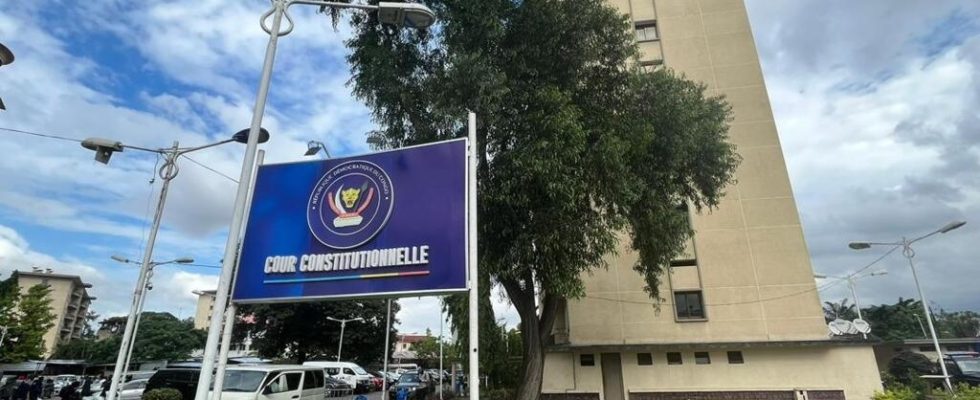In the Democratic Republic of Congo (DRC), while the victory of Félix Tshisekedi in the presidential election was proclaimed by the Independent National Electoral Commission (Céni) on December 31, 2023, the time has come for possible appeals from candidates to the Court constitutional, these January 2 and 3, 2024. How should this institution then examine them? Details.
2 mins
With our correspondent in Kinshasa, Patient Ligodi
In the Democratic Republic of Congo (DRC), after the publication of the provisional results of the election presidential election, the time has now come for appeals. Candidates who believe they have been wronged have two days, January 2 and 3, 2024, to submit their files to the Constitutional Court. Disputes must be examined within seven days following the referral.
This is a rapid procedure that will now begin. Some Congolese constitutional experts explain that this speed aims to avoid a long wait and to avoid paralyzing one of the most important institutions of the Republic.
The main challenge for candidates is to provide evidence to support their claims. This proves particularly difficult for the applicants given the immensity of the country and the means necessary to have witnesses everywhere.
Professor Eugène Banyaku Luape, former member of the Constitutional Court, testifies to the difficulties encountered in the past due to this lack of documents: “ This is especially for the 2006 elections and those of 2011. It must be admitted, it is incomparable. There were no minutes. When I left the Constitutional Court, I had not seen minutes of the results supporting the petitions filed before the Constitutional Court. »
Candidates complained about the expulsion of their witnesses from certain polling stations
For the presidential election in December 2023, certain candidates complained about the expulsion of their witnesses from certain polling stations. In some regions, the Independent National Electoral Commission (Céni) explained that access to polling stations was difficult due to the narrowness of the premises. Other candidates were only able to obtain the forms taken out of the voting machine, whereas it is the signed minutes which have value in the event of litigation.
Read alsoPresidential election in the DRC: what to remember from Félix Tshisekedi’s score the day after the provisional results?
General elections in the DRC: questions still unanswered after the quadruple ballot in December
The DRC is now awaiting the results of the three other elections which were held at the same time as the Presidential election: legislative, provincial and partial municipal elections. They must be announced in the coming days by the Ceni, whose observers and candidates are also awaiting further clarifications on the process, underlines our special correspondent. Paulina Zidi.
This was information that opponents and observers had been asking for several days: the number of open polling stations. The Ceni finally gave a first response this Sunday. Out of 75,478 planned offices, 64,196 actually operated. Of the remaining 11,000 offices, some simply could not accommodate voters. Others were unable to submit their results. On the other hand, the Ceni did not detail which voting day these offices had opened nor the reasons for these closures.
Another point where clarification is awaited is the irregularities file. The President of the Commission recognized this. “ Some candidates resorted to acts of vandalism, intimidation, corruption and violence against some of our electoral agents in order to stuff the ballot boxes and win “, declared Denis Kadima.
A Commission was set up by the Ceni. Sanctions were mentioned against these candidates: mainly to the national and provincial deputies, again according to Denis Kadima. But the Commission did not go further and did not give the extent of these irregularities.
